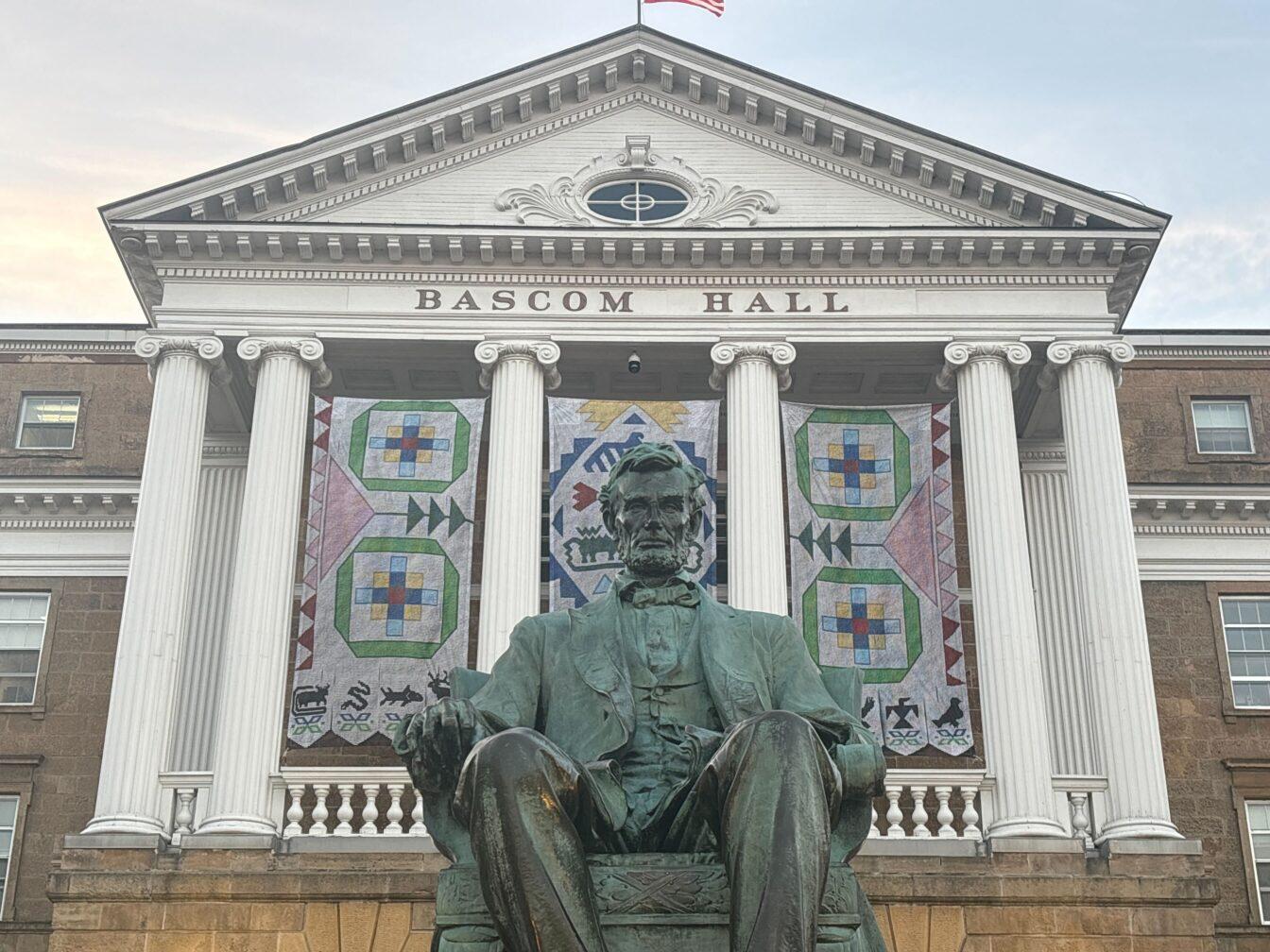The University of Wisconsin will offer financial support to cover the full cost of pursuing an undergraduate degree for Wisconsin residents who are enrolled members of federally recognized Wisconsin Indian Tribes beginning fall 2024, Chancellor Jennifer Mnookin announced today.
An additional five-year pilot program will cover in-state tuition and fees for students pursuing J.D. or M.D. degrees who are Wisconsin residents and enrolled members of federally recognized Wisconsin tribes, according to a press release.
The two initiatives, called the Wisconsin Tribal Educational Promise Program, were developed over the past year in consultation with the Great Lakes Inter-Tribal Council — a consortium that includes the tribal chairperson or president of each of the 11 federally recognized American Indian tribes in Wisconsin.
Mnookin met with council members to discuss the proposed program, making changes based on those conversations. The council unanimously voted to support the program in October.
Mnookin told student journalists Friday that the program, specific to Wisconsin’s flagship institution, is part of UW’s larger commitment to a future of mutual respect and cooperation with American Indian tribes in Wisconsin.
“I think it’s a really important program both to live out our values and to recognize that we do sit on the ancestral home of the Ho-Chunk Nation,” Mnookin said on Friday. “This is a way of making our shared future even more concrete.”
When the Wisconsin Tribal Educational Promise Program begins in the fall, eligible students who are already on campus, as well as eligible students who are new to campus, will be supported. The program is not based on financial need and will award financial support regardless of family income.
The commitment covers tuition and fees, as well as housing, meals, books and other educational expenses. After other scholarships and grants, the program will provide sufficient financial support to meet the estimated cost of attendance. The undergraduate cost currently for a Wisconsin resident is $28,916 annually.
For professional students pursuing a law or medical degree, the pilot program will cover the cost of in-state tuition and fees. Other expenses, such as books or living expenses, are not included. Tuition and fees currently total $35,197 annually for J.D. students, and $42,198 annually for M.D. students.
President of the Stockbridge-Munsee Band of Mohican Indians and chairwoman of GLITC Shannon Holsey said the program marks a “significant step” in the partnership between American Indian tribes in Wisconsin and UW.
“While several other states have programs with similar goals, we are not aware of another effort that goes this far financially to help Native students afford higher education,” Holsey said. “This program sends a strong message that our students are important to the state’s flagship university.”
UW student and member of the Odaawaa-zaaga’iganing (Lac Courte Oreilles Band of Lake Superior Ojibwe) Khalistan Memengwaa Cadotte said she was “speechless” when she learned about the new program.
Cadotte said the partnership will help students in obtaining an education, making “life changing outcomes” more accessible.
“With this access to education, our people and internal communities will gain the benefits of collective educational achievements,” Cadotte said.
Director of tribal relations at UW Carla Vigue said support and care for one another is at the heart of the Native community. Vigue emphasized the importance of making decisions that benefit those today, but also those to come in future generations.
“It is our hope that more Native students will take a second look at UW–Madison and realize that we are not out of reach,” Vigue said. “And I want Native students to know that, once here, we have support and services that can help them thrive and feel a real sense of belonging at this world-class university.”
Mnookin’s announcement aligns with UW’s Our Shared Future initiative, the university’s commitment to represent the inherent sovereignty of the Ho-Chunk nation. The Wisconsin Tribal Educational Promise Program will further efforts to support students from Wisconsin Indian tribes.
“As a university, we are deeply committed to a future of mutual respect and cooperation with the American Indian tribes in Wisconsin,” Mnookin said . “This program is another tangible, meaningful step in that direction.”
Editor’s note: This article was updated to include information from UW student Khalistan Memengwaa Cadotte.




